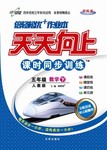题目内容
Smith, who comes from____ European country, is regarded as ____ honorable man.
A. a; a B. a; an C. the; an D. an; the
B

 赢在课堂名师课时计划系列答案
赢在课堂名师课时计划系列答案 天天向上课时同步训练系列答案
天天向上课时同步训练系列答案This book tells ____ life story of John Smith, who left ____ school and worked for a newspaper at the age of 16.
| A.the;/ | B.a;the | C.the;the | D.a;/ |
Imagine landing in a foreign country where you cannot speak the language, understand the culture and don’t know anybody. Wouldn’t it be nice to have a friend who could help you out?
John Smith, an English explorer who landed in America in 1607, found the best friend ever. She was a Native American named Pocahontas (1595-1617). And she did more than teach Smith the language: she saved his life, twice.
Smith was captured(捕捉) by members of Pocahontas’s tribe(部落) and was going to be killed. But for some reason, the Chief’s daughter, Pocahontas, felt sorry for Smith (who was probably the first white man she had ever seen) and threw her body over his to protect him. Smith returned safely to the small village he was living in. During the winter the English settlers did not know how to get food from nature. Pocahontas often brought food for Smith and his friends.
A year later Pocahontas’s father tried to kill Smith again because the Native Americans were very scared the English would try to take over their land. Pocahontas warned him and he was able to escape. Later she became a Christian and eventually married an Englishman named John Rolfe. She spent the last year of her life in London. Pocahontas has become an American legend. Her life story has been re-created in many books and films, including Disney’s 1995 film, Pocahontas.
One of the reasons she is so popular is that many Europeans look at Pocahontas as an excellent example of how a minority can adjust into the majority. Pocahontas is also respected because of her selfless love. She proved that people can be kind and loving even to people of a different race or culture. John Smith was very different from Pocahontas but she could see he was a good man and that was all that mattered. No race or country owns goodness, love and loyalty.
【小题1】 What difficulties might early European settlers meet in America EXCEPT ___________?
| A.the fierce conflict with Native Americans |
| B.lack of food in winter |
| C.bad-tempered natives who enjoyed killing |
| D.unfamiliarity with a foreign land |
| A.she believed in general kindness even to people of a different race |
| B.she wanted to become a Christian and marry an English |
| C.he was the first white man she had ever seen in her life |
| D.she was on the settlers’ side and against her cruel father |
| A.Her tribal background and her marriage to a white settler. |
| B.The recreation of her life story in the 1995 Disney film. |
| C.Her complicated life story different from common people’s |
| D.Her selfless help to people regarded as enemy of her tribe. |
| A.People from different cultures can never really get along well with each other. |
| B.The Europeans think the early settlers should have learned to adjust to the local cultures. |
| C.The creation of America is based on the settlers’ victory over the Native Americans. |
| D.The battles between early settlers and Native Americans resulted from their fighting for land. |